Product Information & Customer Reviews
Description
Sample Table of Contents (for all license types):
Theft and Loss Prevention SOP
Proper Use of Chemicals/Spill Prevention SOP
Loitering Prevention SOP
Hazard Communication SOP
Cash Management SOP
Access Control SOP
Employee Handbook (scroll down for contents)
(for Dispensaries):
Reporting Workplace Violence SOP
Handling Hazardous Waste SOP
Delivery SOP
Compliance w Local Laws & Regulations SOP
Disabled Accessibility SOP
Employee In Charge SOPs
Product Transactions SOP
(for Consumption Lounges):
Preventing Overconsumption SOP
Sanitizing Consumption Paraphernalia SOP
Preventing Impaired Driving SOP
Maintaining Air Quality & Ventilation SOP
Air Quality Equipment Maintenance SOP
(for Cultivators):
Using Recycled Organics SOP
Proper Use of PPE SOP
Preparing Grow Media SOP
Materials Handling SOP
Handling Health & Safety Concerns SOP
Pesticide Storage SOP
Integrated Pest Management SOP
Applying Agricultural Inputs SOP
(for Processors):
Operating Processing Equipment SOP
Product Quality Plans
Master Manufacturing Records
Batch Records
Handling Chemicals and Solvents SOP
(Employee Handbook Contents):
Accessing Laws & Regulations
Allowing Inspections/Investigations
Compliance w/ Inventory Systems
Employee Safety
Equipment List
Equipment Maintenance
Safe Consumption of Cannabis
Safety Data Sheets
Sanitizing Agents List
Mock Recall Records
The final regulations, published September 12th, 2023, state that Site, Operating and Environmental Plans must be made available “upon request” by the OCM. We do not yet know when, during the licensing process, they will be requested.
The Site Plan is more of a visual representation of the premises and the facility, suited to an architect or engineer, where the other plans are written documents we can provide for you.
The contents of the NY Cannabis Operating Plan are extensive and vary somewhat based on license type. Here is what they all have in common:
Procedures to:
(i) deter theft and prevent loss of cannabis and cannabis products;
(ii) ensure access to restricted areas of the licensed premises is restricted to only the individuals authorized to access these areas;
(iii) prevent loitering and ensure that only individuals engaging in activity expressly, or by necessary implication, permitted by the Cannabis Law and this Title are allowed to remain on the premises of the licensee;
(iv) handle, store, and transport cash;
(v) monitor and track quality assurance concerns and complaints and to recall cannabis products pursuant to section 125.9 of this Part; 269
(vi) identify workforce training needs on an annual basis and requiring ongoing training of each full-time employee for a minimum of four (4) hours per year, or the equivalent for employees that are less than full-time of the following training: (a) occupational health and safety training for all employees in addition to other required training, from a training vendor approved by the Office which shall be in the worker’s dominant language, where possible; (b) hazard communication training which must include: (1) an explanation of the labels received on shipped containers and the workplace labeling system used by their employer; (2) the safety data sheet, including, the order of information and how employees can obtain and use the appropriate hazard information; (c) proper use of chemicals or material that require the use of a respirator, consistent with Title 29 Code of Federal Regulations section 1910.134; for employees working with chemicals or materials.
Employee Handbook:
The operating plan shall consist of an employee handbook which shall be available to the licensee’s employees at all times. Employee Handbook shall include, but not be limited to, information:
(i) that is tailored for the licensee’s employees and clearly delineates the employee roles and responsibilities in implementing the written operating procedures contained within the operating plan;
(ii) related to the safer consumption of cannabis products including, at a minimum, the physical effects of cannabis on the human body based on the phytocannabinoids present; recognizing signs of impairment; the onset of intoxicating effects depending on product form or type; strategies for consumers to more safely store and dispose of cannabis products; the appropriate responses in the event of overconsumption; and risks of cannabis use and over-use, including cannabis use disorder;
(iii) related to employee safety, including shutdown and emergency procedures which, for processor, microbusiness, cooperative, ROD, or ROND licensees authorized to extract using solvents, shall include specific information related to safe extraction, fire prevention, and response in the event of a fire;
(iv) to assist employees in compliance with inventory tracking requirements and operation of the licensee‘s inventory tracking systems; (v) to ensure employees allow investigations or inspections, as described in section 125.12 of this Part and Part 133 of this Title, to occur; and (vi) on how to access current laws, rules, and regulations, and any guidance or policy documents issued by the Office; and (8) Additional information.
The Operating Plan must also include:
(i) A list that include the first and last name and employee ID number, or other similar unique identifier, of all employees authorized to access any surveillance room(s);
(ii) an equipment list, which shall include, at a minimum, a list of all equipment used in a nursery area or in the cultivation or processing of cannabis, equipment used in the sanitization of cannabis paraphernalia used by consumers in a consumption facility or exception area, and equipment, including filters, used to maintain the air quality of any consumption facilities or exception areas;
(iii) description of manufacturer’s requirements for maintenance and records of maintenance for all equipment on the equipment list that is used to meet energy and environmental standards;
(iv) a list of all sanitizing agents used to maintain equipment used in the cultivation, processing, distribution, transportation, storage, and sale of cannabis or cannabis products;
(v) safety data sheets for all pesticides used and for all hazardous chemicals and solvents used in processing
(vi) records of all mock recalls the licensee has conducted.
Sample Pages
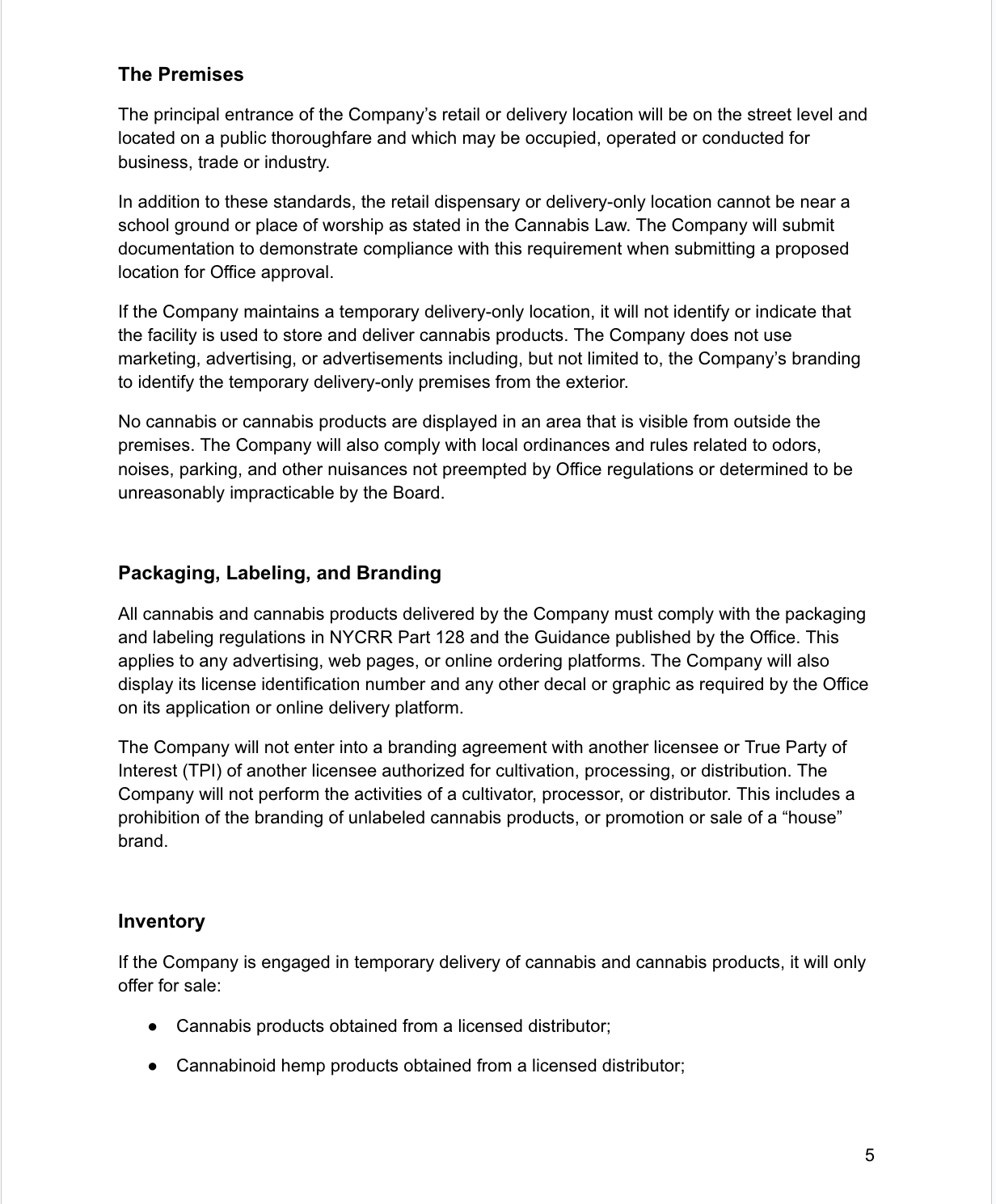
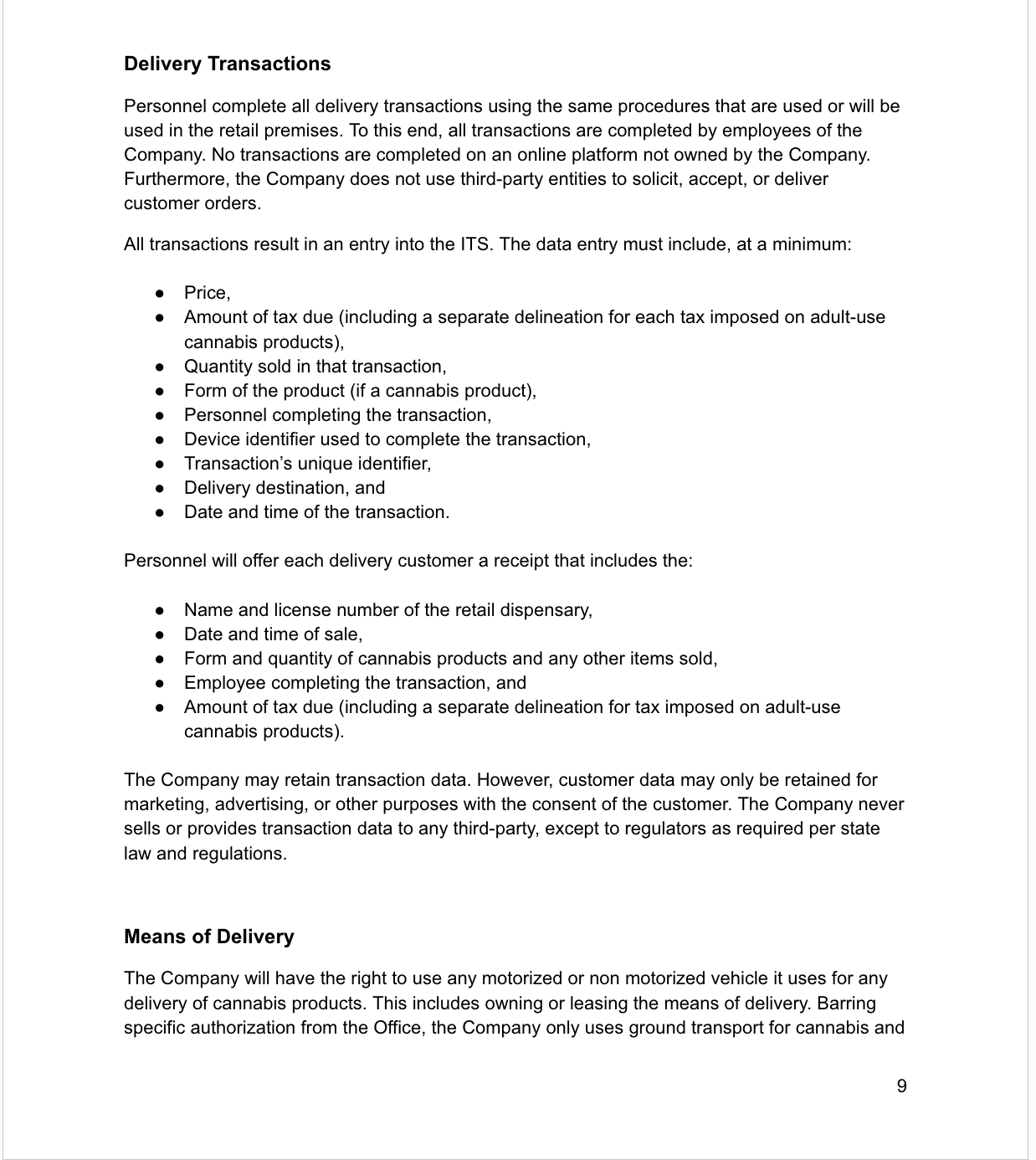
Related Products

Our Story
Our cultivation expert and our dispensary expert have been in the cannabis industry since the mid 90's when medical dispensaries first started operating in California. We both lived in Amsterdam in 1995-96 and cut our teeth in the legal industry there, where it was very competitive in comparison to the US.

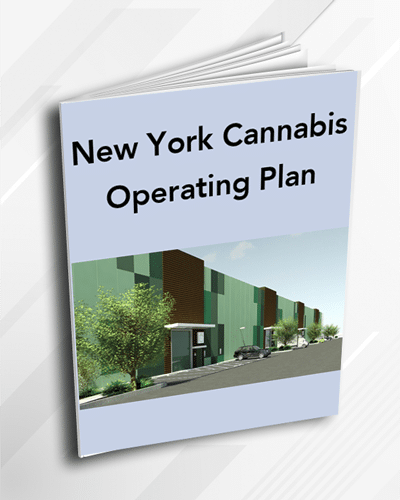

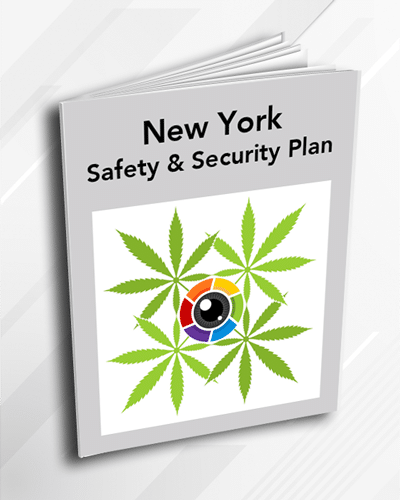
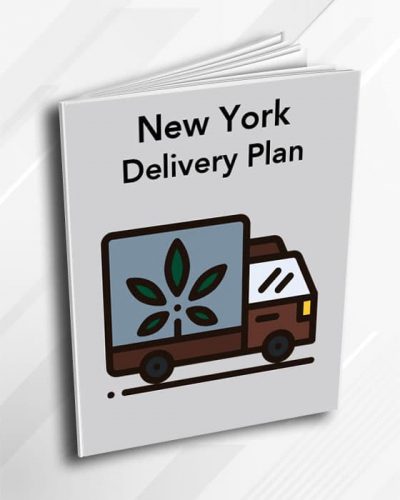


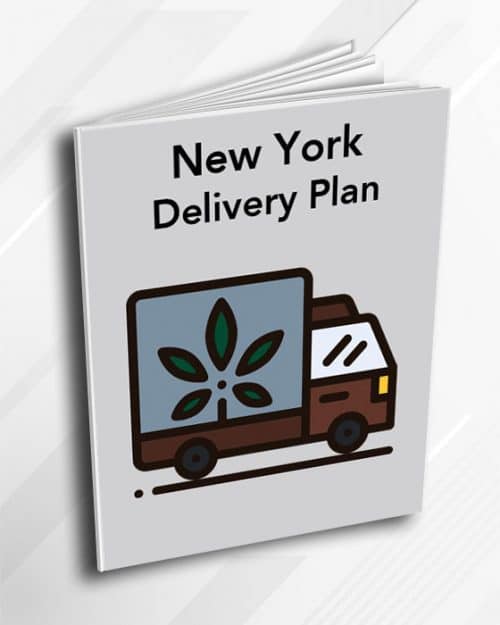
Reviews
There are no reviews yet.